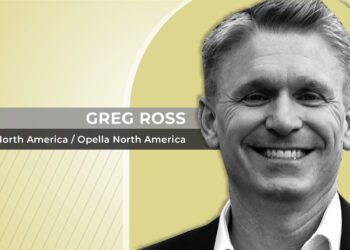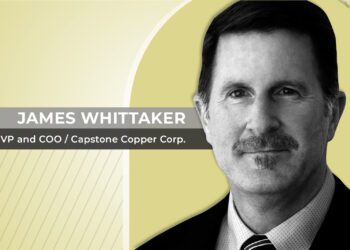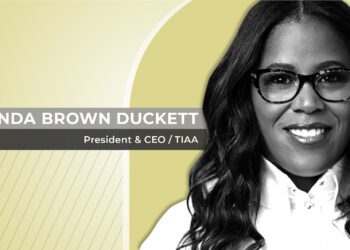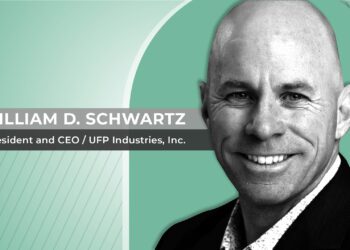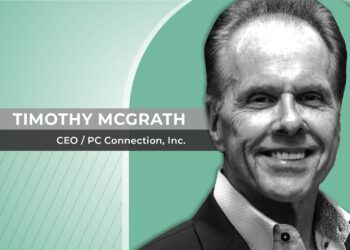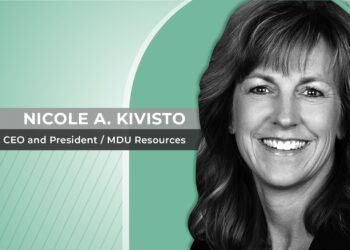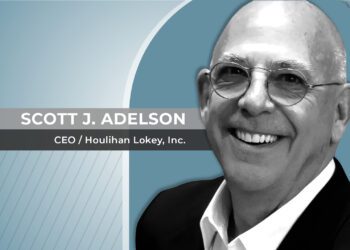For Peter Dameris, CEO of ASGN, changes in the labor market mean new approaches for employment services providers.
ASGN operates in a world where the constraint is on supply, not demand.
While the business of ASGN is to supply human capital, CEO Peter Dameris insists that like any other industry, the employment services sector has been deeply affected by disruptive technology as customers look for increasingly efficient and accurate ways to acquire the talent they need.
Nowhere is this truer than in the science, technology, engineering, and math (STEM) field where the labor market is changing as rapidly as the field itself.
“Contract labor is the original gig economy, the original sharing economy business model,”says Dameris, who has been involved in the industry since 1993. “We permit corporations and customers to be able to turn human capital into a variable cost versus a fixed cost, and in doing so, enhance employee utilization which in turn enhances employee productivity.”
Formerly known as On Assignment, ASGN changed its name following the $775 million acquisition of government services contractor ECS Federal LLC in January. A global provider of professionals based in Calabasas, California, the company focuses exclusively on STEM, a rapidly changing labor market that has enabled it to grow at a rate twice industry expectations, boasting revenue of $2.6 billion in FY2017.
“In the specific world we live in, which is STEM, the way technology is deployed has changed immensely,” Dameris explained. “Companies are realizing the best way to develop and deploy, whether it’s mobile apps, predictive analytics, or migration to the cloud, is with best-of-breed talent.”
ASGN: submerged in a changing market


Through its various companies, which include Apex Systems, Apex Life Sciences, Ox- ford, and LabResource, ASGN puts 25,000 technologists to work per day, typically on contracts of between six and thirteen months and overwhelmingly at major North American corporations looking for sophisticated solutions to their STEM labor needs.
“We don’t try to be everything to everybody,” Dameris said. “We stay only in the STEM skills, and when you’re working with people’s data, cyber security matters, and as we live in a more dangerous world, personal security matters. People rely on and trust us that we can deliver them the benefits of sharing a resource without any of the attendant risks of not knowing the person and owning them 24/7.
“That’s why we’ve been able to grow at twice the rate of most published industry forecasts over the past 17-18 quarters, and we believe that the relationship, trust, and awareness we have with our major customers will permit us to continue to gain a greater share of their spend in this deployment model area.”
Dameris says that challenges to ASGN’s business model have come in a variety of forms, both in terms of labor legislation—including the decision by congress to tighten H1B visas and reclassify independent contractors—to the evolving demands of customers who today want to retain greater control and visibility in their IT projects. Nevertheless, the company continues to perform above and beyond expectations.
“We’ve consistently stated that based on our current positioning, skillset mix, and momentum that we can grow 200-300 basis points faster than published industry growth rates irrespective of the economic backdrop,” Dameris said. “We’re going to stay North America-centric. We’re going to stay in the STEM world and we’re going to continue to build our dominant service offerings.
“We operate in a world where the constraint is on supply, not demand,” he added. “So making sure we are developing the right relationships with the technology consultant community and ensuring our internal staff have the right tools to be able to create those relationships is the biggest driver of success or failure.”
The importance of data
Dameris cites communication and knowledge as the key factors in ASGN’s ongoing success, pointing out that within such a fast-moving marketplace, collecting and analyzing data is key for both the company and its customers.
“The world’s fascinating today,” he explained. “If you’re in London, looking at properties in France, why am I showing you a job opportunity in Germany? Because the data shows from your search on Zillow that you have an interest in living in France. So we’re buying an enormous amount of data that we use on a predictive basis. We’re also using tools that others have created to parse and manipulate our own data to drive end results that we know will generate relationships and contacts.
“Human capital is the largest single line item of any company and the changes that are going on today with regards to trying to make it more of a variable cost than a fixed cost is moving forwards, not backwards.”
“As CEOs are looking to how they’re going to keep their businesses competitive, how they’re going to make them more cost efficient, they look at how they can enhance employee productivity which in turn allows them to invest more in R&D and new product development.”


